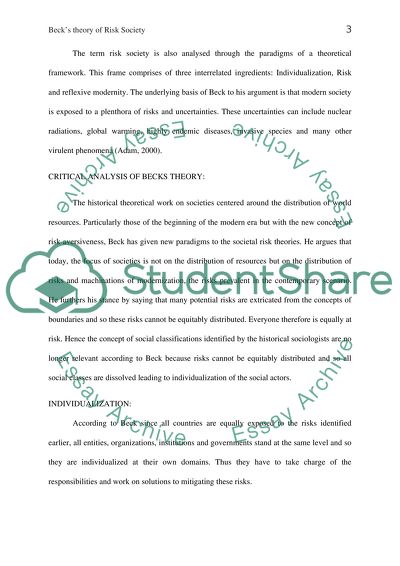Cite this document
(“Beck's Theory of Risk Society Essay Example | Topics and Well Written Essays - 2500 words”, n.d.)
Retrieved from https://studentshare.org/finance-accounting/1455613-critically-analyse-beckyies-theory-of-risk-society
Retrieved from https://studentshare.org/finance-accounting/1455613-critically-analyse-beckyies-theory-of-risk-society
(Beck'S Theory of Risk Society Essay Example | Topics and Well Written Essays - 2500 Words)
https://studentshare.org/finance-accounting/1455613-critically-analyse-beckyies-theory-of-risk-society.
https://studentshare.org/finance-accounting/1455613-critically-analyse-beckyies-theory-of-risk-society.
“Beck'S Theory of Risk Society Essay Example | Topics and Well Written Essays - 2500 Words”, n.d. https://studentshare.org/finance-accounting/1455613-critically-analyse-beckyies-theory-of-risk-society.


